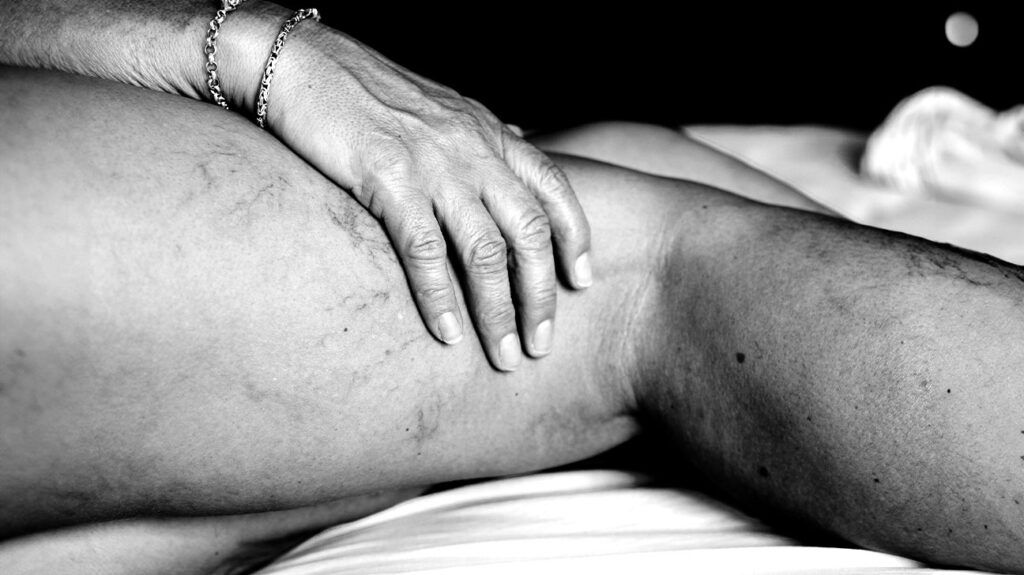In rare cases, a person may develop tertiary syphilis, the worst case of the condition. It can cause severe damage to several organs and systems and even death.
Syphilis is a sexually transmitted infection (STI). In the initial stages (primary and secondary), it can mimic other conditions, leading to a delay in diagnosis.
With antibiotic treatment, it is curable. Left untreated, it can remain in the body for years in a latent stage where symptoms do not present.
In rare cases, it can develop into tertiary syphilis.
Keep reading for more information on what tertiary syphilis is, the symptoms associated with it, treatments, and more.

Tertiary, a late symptomatic stage of syphilis, is currently
Medical professionals associate tertiary syphilis with damage to several organ systems and potentially death. Affected systems
- joints
- brain
- eyes
- nerves
- bones
- heart
- liver
- blood vessels
A person can prevent tertiary syphilis through screening for the infection if they have a higher risk of developing it. People at higher risk who can consider getting tested regularly include the following populations:
- bisexual or gay males
- those living with HIV
- partners of those who tested positive for syphilis
- those taking preexposure prophylaxis (PrEP) for HIV prevention
- people who are pregnant who may have been exposed to syphilis
Read more about the stages of syphilis.
A note about sex and gender
Sex and gender exist on spectrums. This article will use the terms “male,” “female,” or both to refer to sex assigned at birth. Click here to learn more.
Since tertiary syphilis can affect many different organs and body systems, the symptoms
Some possible symptoms include:
- difficulty moving arms and legs
- numbness
- paralysis
- heart disease
- blindness
At any stage of infection, syphilis can enter different parts of the body,
- visual system (ocular syphilis)
- nervous system (neurosyphilis)
- auditory or vestibular system (otosyphilis)
These can cause a range of symptoms, which can include:
- severe headache
- muscle weakness
- trouble with muscle movements
- changes to mental state, such as trouble focusing, confusion, or personality change
- dementia, such as problems with memory, thinking, or decision making
- changes in vision or blindness
- eye pain
- redness in the eye
- ringing, hissing, buzzing, or roaring in the ears
- hearing loss
- dizziness or vertigo
Since the use of penicillin as a treatment option, tertiary syphilis occurrences
The rate of syphilis infections per year has increased in the United States. According to data from the
Identification and treatment of syphilis can help cure a person of the infection and prevent tertiary syphilis from occurring.
Treatment for tertiary syphilis
For people who cannot take penicillin due to allergy or other reasons, the
While treatment can stop the infection and kill the bacteria, it
A person may discuss treatment options with a healthcare professional before starting antibiotics. A person can also inform the healthcare professional if they do not tolerate penicillin.
Following treatment, a person can develop syphilis again. To help prevent infection, a person can take steps
- using condoms or other barrier methods during intercourse
- only having sexual relations with one person or people who do not have the infection
- getting yearly blood tests
Untreated syphilis can stay in a person’s body for the rest of their lives. It can cause organ damage, tissue damage, and potentially death. Symptoms and signs of damage may not present for many years.
A person may also pass syphilis on to any of their sexual partners.
In some cases, it can enter a latent stage. During this stage, a person will not present with any symptoms, but a blood test
In rare cases, it can enter tertiary syphilis.
The following sections provide answers to some frequently asked questions about syphilis.
Is syphilis 100% curable?
Penicillin or other antibiotics
What are the 4 stages of syphilis?
Syphilis breaks down into four stages, including:
- Primary stage: This is the initial infection, which medical professionals associate with a painless, swollen bump at or near the site where syphilis entered the body. It will heal on its own regardless of treatment.
- Secondary stage: This stage may include different symptoms, such as fatigue, fever, or sore throat, along with a rough rash appearing shortly after the original sore healed.
- Latent stage: The bacteria can remain dormant in the body for several years.
- Tertiary stage: This is a rare occurrence due to untreated syphilis, associated with severe organ damage and possible death.
Syphilis may enter a late stage if not treated in one of the earlier stages. Treatment with antibiotics can cure the infection and prevent tertiary syphilis from occurring.
If it occurs, it can lead to damage to several organ systems and possible death.
A person at risk of syphilis can get tested regularly for infection. If an infection is present, a healthcare professional can treat the infection with antibiotics.
